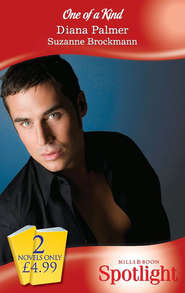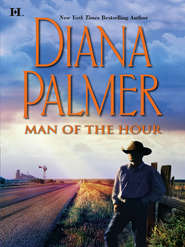По всем вопросам обращайтесь на: info@litportal.ru
(©) 2003-2024.
✖
Heartless
Настройки чтения
Размер шрифта
Высота строк
Поля
“I thought you might like to go to the sale with me,” he said comfortably. “I’ll buy you lunch after we’re through.”
She grinned. “I’d love to,” she said.
Not only did she enjoy his company, but she loved the atmosphere of the sale barn. It was always crowded, always fun. She liked hearing the auctioneer’s incredibly rapid spiel as he prompted buyers to go higher and higher on prices for the various lots of cattle. She liked the other cattlemen who turned up there, many of them from Comanche Wells, as well as Jacobsville, which was only a few miles from Comanche Wells. There was a select group of environmentally staunch ranchers to which Jason belonged. They raised old grasses that were earth-friendly, they improved the land and provided habitat for wild animals, they used modern methods of feed production that were kind to the ecology, and they were fanatics about the good treatment of their purebred cattle. These cattlemen never used growth hormone and they only used the necessary antibiotics, most particularly those that prevented bovine pulmonary disorder. They didn’t use dangerous chemicals to control weeds or pests. Cy Parks had introduced the idea of using predator insects to control many pests. The lack of poisonous substances on plants helped grow more colonies of honey bees, which were essential to pollination of grain and feed crops.
None of the environmental group of Jacobs County ranchers ran beef cattle; they were all producers of herd sires and champion young bulls, cows and heifers, which they sold for herd improvement. It got them into trouble sometimes with beef producers who wanted a quicker profit. There had been some notable fistfights at cattle conferences in the past. Jason had been involved in one of them. Gracie had gone to bail him out of jail, bursting into laughter when she saw him, disheveled and bloody and grinning like a Cheshire cat as they led him out of the detention cell. He loved a good fight.
“I said I’ll pick you up in about twenty minutes,” he repeated, because she hadn’t answered him.
“Okay. What should I wear?”
“Jeans and a T-shirt,” he said. “If we walk in wearing designer clothes, the price will jump twenty dollars a head before I sit down. I don’t want to be recognized.”
“Fat chance if we show up in your Jaguar,” she drawled.
“I’m driving one of the ranch pickups and wearing working clothes,” he drawled back.
“All right. I’ll finish cleaning out my flower beds later.”
“As if we haven’t already got enough damned bulbs poking up in the front yard. You’re getting soil ready to put out more this fall, aren’t you?” he muttered. “And I’ll bet you’ve got Harcourt refilling those planters on the porch.”
He knew her too well. “It’s just pansies—they’ll last until late autumn. I won’t plant bulbs until October. But bulbs are beautiful in the spring, Jason,” she defended herself.
“Why do I pay a yard man to do outdoor work?” he grumbled.
“Because he does the heavy work that Harcourt and I can’t,” she replied saucily. “I’m hanging up now.”
“Don’t keep me waiting,” he said. “We’ll barely make it there in time, as it is. I got held up with an accident.”
“You weren’t hurt?” she exclaimed quickly.
There was a slight pause. “No,” he said softly. “Not me. One of my cowboys got stepped on by a bull. Broke his foot, but he’ll be all right.”
She let out the breath she’d been holding. Jason was her life. He didn’t know how she felt about him. It was impossible anyway. She could never do those things with men that most modern women did. She remembered her mother coming out of the bedroom, the blood staining her nightgown…
She grimaced. “I thought you just hired a new man to go to local sales representing the ranch to buy cattle for you.”
“I did. But I’ve heard some things about him I don’t like. He’s supposed to be at this auction. I can see for myself.”
“He’ll recognize you.”
“In my working clothes? Fat chance! Besides, he’s only seen me once, behind a desk.”
“Suit yourself. I’ll be ready.”
“Better be, or I’ll dress you myself,” he warned.
“Jason!”
But he’d already hung up.
She got up, putting aside her trowel. “Mrs. Harcourt, we need to tell Manuel to finish clearing these beds for me,” she said as she mounted the steps. “Jason’s taking me to a sale.”
“All right, darlin’,” the graying old woman said with a smile. She was tall and amply padded, with black eyes and a lovely smile. She’d come to work for the family before Jason was born and was considered part of it. She and the maid, Dilly, and the chauffeur, John, were all part of the family. There was other staff that worked part-time, but the old retainers were full-time.
Gracie loved living here on the big estate in San Antonio. The staff did go down to the ranch in Comanche Wells occasionally for a few weeks, especially when Jason had company down there. If he did, though, it wasn’t the same local society crowd he invited to the San Antonio mansion. It was often world leaders who needed a break from the backbreaking pressure of their daily lives, high government politicians running from scandals, even an occasional billionaire who wanted privacy even for a few days. Jason chose his friends by their character, not their wealth. It was one of many things Gracie loved about him. He had a big heart and he was a soft touch for people down on their luck. He gave heavily to charities. But he didn’t seem the sort of man who could be approached.
He was an introvert. It was hard for him to connect to people. Consequently he was intimidating to a lot of guests, who found him hard going in private conversations. Only with Gracie could he relax and be himself. It was, she considered, a matter of trust. He felt safe with her, as she did with him.
What a pity, said her friend Barbara, who ran a café in Jacobsville, that Jason and Gracie were brother and sister, when they had so much in common. Gracie had reminded her that there was no blood relationship there. Jason’s father had married Gracie’s mother, who was killed only a couple of weeks after the wedding in an automobile accident. Myron Pendleton had kept Gracie, who had no other living relatives, and soon gave her another stepsister, Gloryanne Barnes—now Mrs. Rodrigo Ramirez—when he married Glory’s mother, Beverly, months later. Glory and Gracie had more in common than anyone else knew. They were best friends. It was the two of them against the world when they were in school, because both had scars from their childhoods and neither was comfortable with boys. They rarely dated. They were targets of some vicious bullying, which Jason had quietly and efficiently nipped in the bud. Even today, Glory was still the closest thing to a sister Gracie had ever had.
She showered and dried her hair, dressing in jeans with a vine of pink roses embroidered down one leg, with a pink T-shirt. Impulsively she brushed out her long, pale blond hair and braided it into pigtails. She grinned at herself with twinkling gray eyes. She had a soft complexion with radiant smoothness. She wasn’t beautiful, but she was pretty, in her shy way. She frowned, wondering if it was appropriate to wear pigtails at her age. Sometimes she did things that seemed odd to other people. That little glitch in her brain did a lot of damage to her ego, from time to time.
Well, it was too late to worry about it now. She put on her fanny pack and pulled on her boots over thick socks. A horn was blowing outside the front door. Jason, impatient as always.
She ran down the staircase, almost stumbling head over heels, remembered that she’d left her cell phone in her room. She hesitated. What the heck, Jason had his. She continued down the stairs and out the front door.
“I’ll be out for lunch!” she yelled.
“All right, dear,” Mrs. Harcourt called back.
Jason was tapping his fingers on the steering wheel. He glowered as she quickly descended the front steps of the elegant brick mansion and hurried down the paved walkway to the circular driveway where his big black ranch truck was waiting with the door open.
She tumbled in beside him and slammed the door.
“I know, I know, I’m late, but I had to have a shower,” she rationalized as she fumbled with her seat belt. “I couldn’t go out with dirt on my hair!”
He glanced at her from under the wide brim of his creamy Stetson. He didn’t smile, but his black eyes did.
He was wearing jeans, too, with wide leather batwing chaps, old disreputable brown boots with turned-up toes from too many soakings and stains everywhere. His shirt was chambray and faded. Despite the immaculate cleanness of his beautiful, tanned hands, he looked like a poor, working cowboy.
Heavens, he was sexy, she thought as she gave him a covert appraisal. Tall and broad-shouldered, with that physique rarely seen outside a Hollywood Western film, jet-black hair in a conventional short cut, and a light olive complexion that was a legacy, like his black eyes, from a Spanish grandfather. He wasn’t conventionally handsome, but he had a very masculine face, lean and square-jawed, with deep-set eyes and high cheekbones and a mouth that was so sensuous it made Gracie squirm. He’d never kissed her. Well, not in the way a man would kiss a woman, anyway. They didn’t have that sort of relationship. Nor was he a womanizer. He had women, certainly, she was sure. But he never brought them home.
“Deep thoughts, tidbit?” he teased, grinning at her with perfect white teeth.
“I was thinking how handsome you are,” she blurted out and then flushed and laughed nervously. “Sorry. My mouth and my brain are disconnected.”
He didn’t smile. His black eyes slid over her face and back to the road. “You aren’t bad yourself, kid.”
She toyed with her seat belt. “Are any of the Jacobsville crowd coming up for this sale?”
“Cy Parks, J. D. Langley and Leo Hart,” he said. “The Harts are after another one of those Japanese bulls grown for Kobe beef. They’re moving into new breeding programs.”
“Don’t tell me Leo’s gone off Salers bulls?” she exclaimed.
He laughed. “Not completely. But when you consider how well Japanese beef sells, it’s no surprise. It’s tender and lean and appeals to shoppers. We’re in a consumer-driven market war, grubbing for new methods of production and new marketing techniques to overcome the slump in sales.”
“Don’t you still chair a committee on marketing with the cattlemen’s association?”











